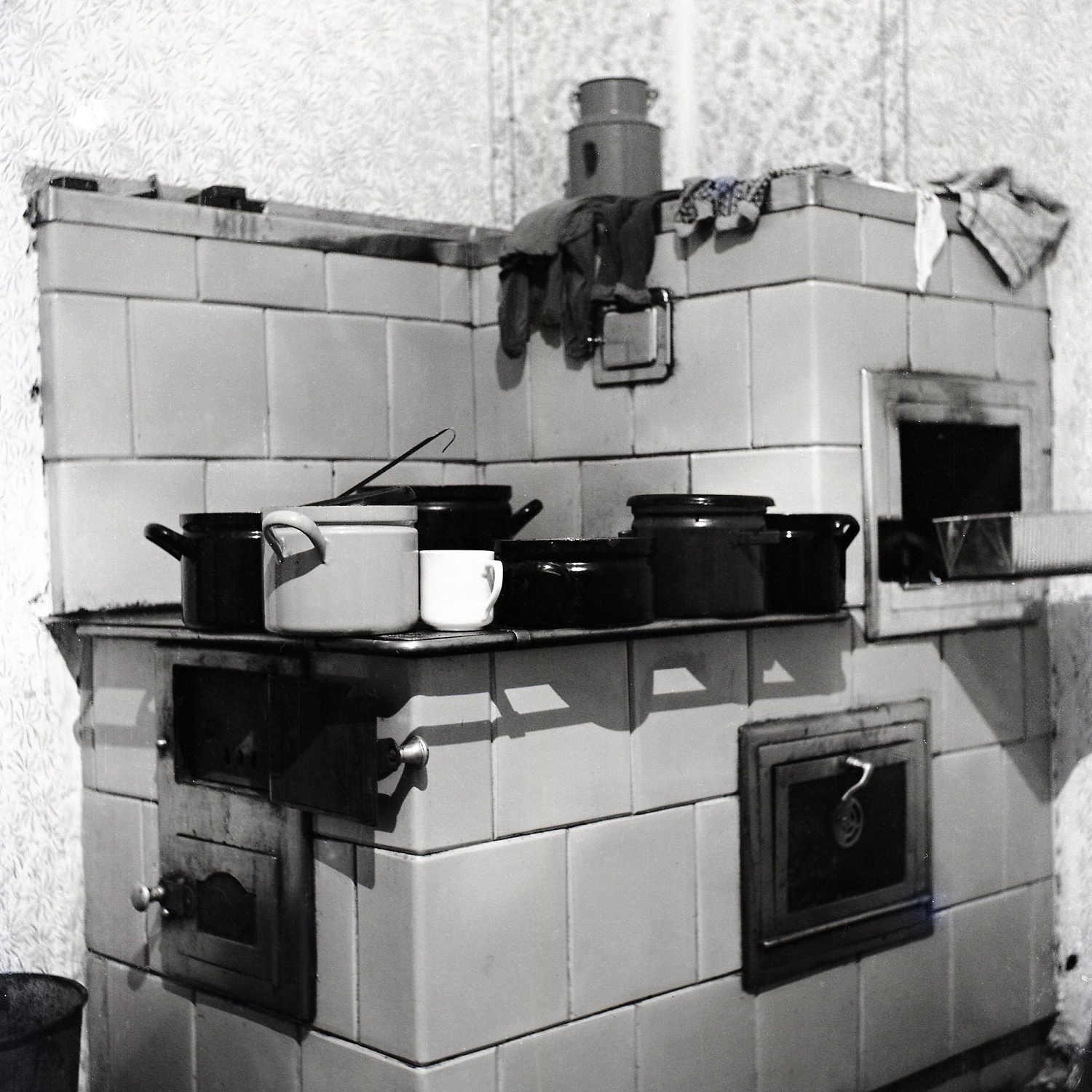“In the Kitchen with Celia” & “For Me: A Sweetelle”
New poems from the Food Issue
By Sean Hill

© Jasiok K. Courtesy Wikimedia Commons
IN THE KITCHEN WITH CELIA
The kitchen her domain, a hot continent
of her own as much as can be, as long as
she keeps the house, the Browns, well-fed.
——
kettle
hooks for hanging things
rod
Dutch oven
cannisters
table
sifter, mixing bowls, and measuring spoons & cups,
whisk
knives, forks, spoons, the dinner service
bread box
patterned oilcloth
cutting board
flyswatter, dustpan, and broom
ash bucket and shovel next to the wood
spit in the hearth
dumbwaiter to serve the rest of the house
butter churn with dasher for the clabber
grinder
larder
——
Some kitchen objects have handles worn smooth by hands, an incidental rubbing with sweat and oils, and pots and pans carry seasoning (contain processes and eventualities—kitchen memories) and their heft has weight, can transport us with a touch or a taste of the food from them. Objects bear witness to kitchen witnesses—cooks.
——
I wonder what Celia makes of that man
from Macon come here to bake when
company, what they call a State gathering,
demands. They love his specialty, Apples à la
Parisienne. I wonder what Celia makes of that
Mister Freeman, that Negro and his freedom.
I wonder if Celia sees herself as governor-fueler,
greasing the machine, though her food nourishes
this politician up to and through what they’ll
call a rebellion to keep to their ways including
foremost the holding of Celia and vast hosts of
Negroes and their generations to come in bondage.
I wonder what Celia thinks about the fact
that Governor Brown would rather have her
cook shad pulled fresh from the Oconee at
the end of Jim’s cane pole or something Jim
shot in the woods around with his flintlock than
any of the fancy dishes she makes for their levees.
I wonder what she prefers to cook and what dish
her dear Emma most desires from this kitchen.
——
I see Celia in line with other Black cooks; some we know like Hercules Posey, held by Washington—sent back and forth from Mount Vernon to Philadelphia—from slave-holding state to free and back again to keep him according to the laws and to keep him cooking, and Jefferson’s chef, James, James Hemings, Sally’s brother, whom TJ took to France to be trained. James, he brought back macaroni and cheese for the president and now it’s for the people. James had to train his brother to take his place before he could leave the place, Monticello. Zephyr Wright was LBJ’s cook at the White House and before that when he was a representative, and she had his ear and told it like it was for her and hers. And before that and after the war Malinda Russell published A Domestic Cook Book: Containing a Careful Selection of Useful Receipts for the Kitchen in 1866, the first cookbook known to be written by a Negro woman. In 1881 Abby Fisher, another Negro woman, published the second known Black-woman-authored cookbook, What Mrs. Fisher Knows About Old Southern Cooking, Soups, Pickles, Preserves, Etc. This is what we know and what we got receipts for. Negroes learned to cook where they did. Most in the quarters, many in the plantation kitchens, in the mansion, some at home, some in college, a few in France now—many putting they foot in it like my grandma and aunties, reminding us to put okra in the stew if you know what’s good for you. Cooks—the hands and hearts that make the food—tell of journeys, hold our heritage, and bear witness. I’m grateful for what receipts we got and for what we know.
——
A Negro cook’s recipe for
Freedom in the Slave-holding
South calls for 1 very first
breath and 1 pinch of the
independence we’ve all
at one moment felt and ½
mindful of the ancestors’
struggles and 1 heavy needful
of respect for the Negroes’
bodies & loves and ½ a playful
of leavening care and 1 runaway
returned (you, a loved one,
someone new to the place,
or a story told of one whose
decisions and actions open
a space to consider questions
of home) and 1 last breath
(preferably not your own)
and 1 heaping joyful of
the ability to go see your
people and not have to rely
on the person who claims
to own you to relate your love
to your friends and kin (this
last is optional). Season to taste.
FOR ME: A SWEETELLE
After Allison Joseph
For me the struggle was the pig; it’s spelled P-O-R-K
but sounds real close to “poke” in my mother tongue (mother’s
mouth) like what you might put something precious in like a pig.
I forsook the toothsome sweet hell flesh for health decades ago.
For me the struggle’s still the pig; it’s spelled P-O-R-K
and seems to be the favorite meat of my home—Georgia.
I’ve moved to Alaska, sat at the Thanksgiving table
of a man who’d raised a pig, and gratefully eaten his ham
—twenty years’ memory seasoned that savored sweet hell flesh.
For me the struggle is the pig; it’s spelled P-O-R-K.


